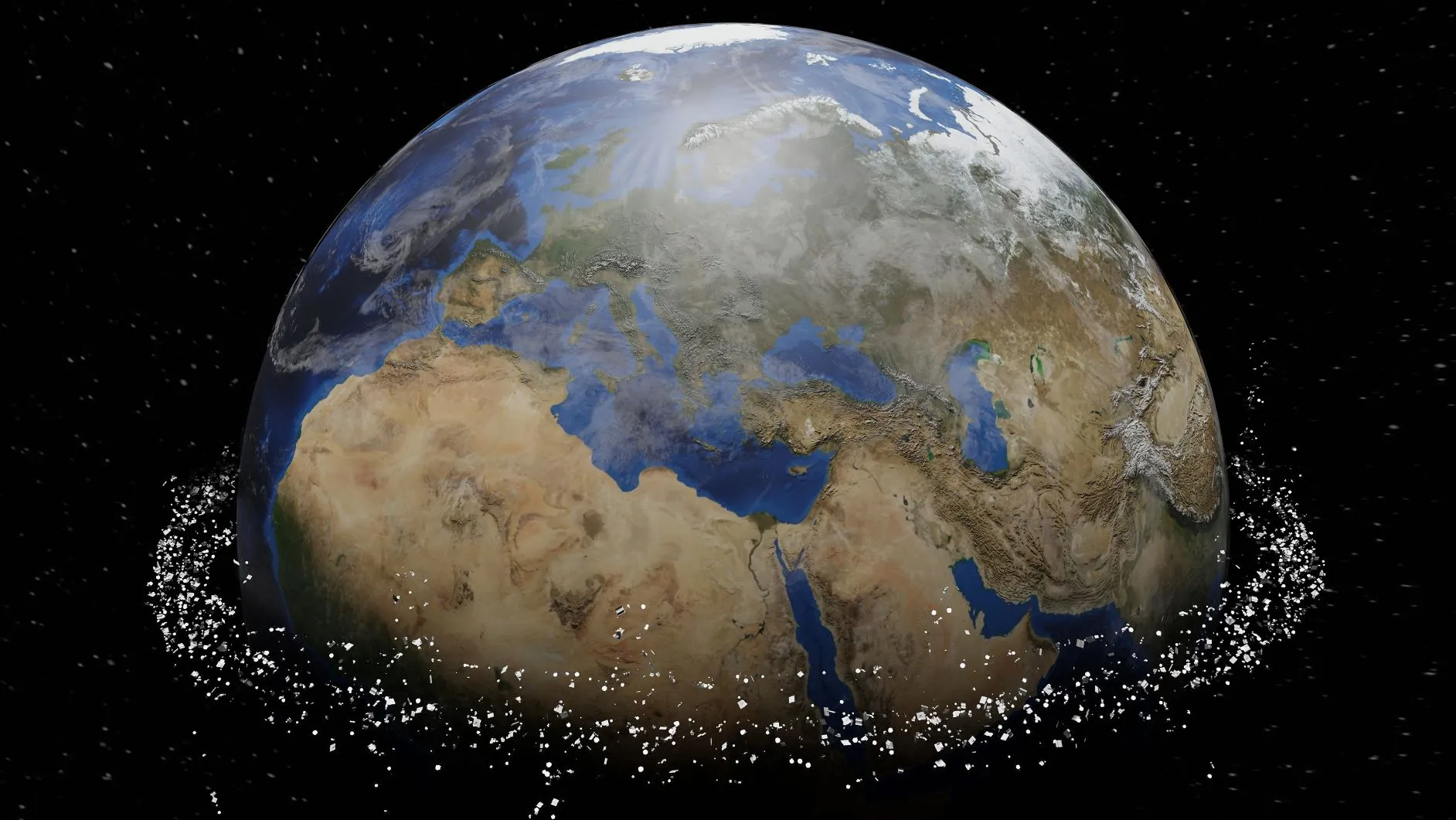Government Backs UK Companies Tackling Dangerous ‘Space Junk’

More than £1 million has been awarded to seven UK companies to help monitor space debris. The seven pioneering projects will utilise new sensor technology and artificial intelligence to examine hazardous debris in space.
There are currently 160 million items in orbit, the majority of which is space debris, which has the potential to crash into satellites that are imperative to everyday life on Earth. The Ministry of Defence and UK Space Agency have signed a formal agreement to collaborate in their efforts to monitor threats and hazards in orbit.
The number of estimated pieces of ‘space junk’ in orbit varies, from 900,000 space debris pieces larger than 1cm, to over 160 million total objects in orbit. Currently only a small percentage of this debris can be tracked by satellites.
The UK has a substantial opportunity to profit from the new age of satellite megaconstellations, which can be described as a vast network made up of hundreds of spacecrafts, and so tracking space debris is imperative to this market more than ever.
The £1 million investment will strengthen the UK’s ability to track space debris and examine the dangers of potentially hazardous impacts with satellites or even the International Space Station.
The funding overlaps with a collaborative agreement between the Ministry of Defence and UK Space Agency, to explore space domain awareness using joint efforts. This military and civil partnership aims to combine data and analysis from defence, to enable civil and commercial space users to gain a stronger understanding of the events occurring in orbit to ensure the safety and security of UK licensed satellites.
The projects supported by the £1 million cash boost include Life Me Off, a company that will develop and assess machine learning algorithms to differentiate space debris from satellites, and Fujitsu who will combine machine learning and quantum inspired processing to improve objective strategy concerning the removal of space debris.
Both Deimos and Northern Space and Security will construct new optical sensors to track pieces of space debris from the UK, whilst Andor will improve their astronomy camera to track smaller-sized debris.
D-Orbit UK will utilise a space-based sensor on their newly launched satellite programme to capture images of space debris, pairing this with Passive Bistatic radar techniques established by the University of Strathclyde. Finally, Lumi Space will research new satellite laser technologies to accurately monitor smaller pieces of space debris.
Space surveillance tracking (SST) is an expanding, international market which space consultants forecast could potentially reach over £100 million.
References:
1. GOV.UK (2020), Government backs UK companies tackling dangerous ‘space junk’
2. UK Space (2020), Government backs UK companies tackling dangerous ‘space junk’
3. Space Daily (2020), Government backs UK companies tackling dangerous ‘space junk’



